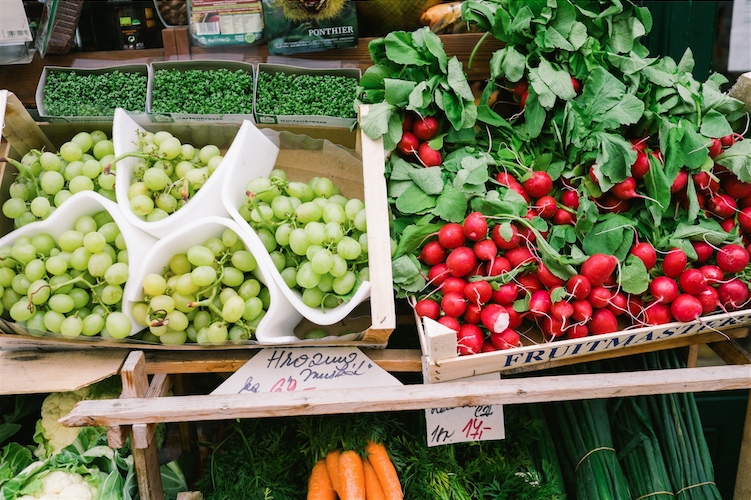If you have stopped by your local grocery store or farmers market lately, chances are you have been faced with two options: organic or non-organic.
In terms of well being, however, the decision is straightforward; but that doesn’t mean it’s an easy selection. Most people, when they hit the store, are trying to find ways to shrink their grocery bill, not increase it. You are almost certain to raise costs a bit by choosing all organic produce. Yet – recent prices of organic produce have decreased dramatically, with larger grocery chains investing more resources into obtaining organic foods.
Questions about organic foods commonly circle the amount of pesticides used in the soil and whether or not it is indeed healthier than non-organic food.
Organic Agriculture
Thousands of farmers receive benefits from the United States Department of Agriculture (USDA) if they follow a set of standards and obtain an organic certification. These standards set by the USDA include:
- Supporting animal health
- Don’t use genetically modified ingredients
- Separate organic food from non-organic foods
According to the USDA “organic agriculture produces products using methods that preserve the environment and avoid most synthetic materials, such as pesticides and antibiotics.” These pesticides and antibiotics are commonly found soaked in non-organic foods, especially those with peels and leaves that are meant to be eaten, such as: apples, pears, lettuce, leaks, etc.
The Dangers of Organophosphates
These pesticides, called organophosphates, were originally developed in Germany as a protection against agricultural pests. Unfortunately, while they are a great deterrent in farming culture, they’re also extremely hazardous to our health.
Organophosphates have become so dangerous when ingested that the United States Environmental Protection Agency (EPA) has garnered ownership over their usage by farmers, ranchers, etc. As reported on the EPA’s website:
“Under the Food Quality Protection Act (FQPA), EPA has the authority to ensure that all pesticides used on food in the United States meet FQPA’s stringent safety standard.
EPA’s continuous reevaluation of registered pesticides, combined with strict FQPA standards…has led to an overall trend of reducing risk from pesticides.
The EPA has asked manufacturers to voluntarily eliminate its use.”
When organophosphates enter the body, poisoning can occur causing multiple organ systems to be affected. Symptoms may include:
- Cardiovascular hypotension
- Nausea and vomiting
- Blurred vision
As well, the Soil Association (United Kingdom’s equivalent to the USDA) reported that pesticides have been associated with cancer, Parkinson’s disease, and fetal defects. Unfortunately, even with all of the EPA’s regulations, large amounts of organophosphates are still found on our non-organic foods.
Organic In, Additives Out: Why Organic is Healthier
Not only are organic crops free of organophosphate pesticides, they are also free from many additives found in non-organic/processed foods including artificial sweeteners and monosodium glutamate (MSG).
In May of 2014, a study published in the British Journal of Nutrition stated:
”…organic crops, on average, have higher concentrations of antioxidants, lower concentrations of Cd (toxic metal) and a lower incidence of pesticide residues than the non-organic comparators across regions and production seasons.”
This study also concluded that magnesium and vitamin C levels in organically grown foods were 27% and 29% higher than non-organic foods. Ascorbic acid (a form of vitamin C) aids in lowering the risk of heart disease, stroke and cancer. Another main health benefit is its relief of the common cold. Both magnesium and vitamin C are EACH necessary in over 300 known metabolic processes in the body!
When initially checked at the cellular (white blood cell) level, nearly 90% of my patients are deficient in magnesium, and about 40% have low levels of vitamin C.
Due to findings like these over the years, even if one “eats well,” I still recommend a high quality, professional grade vitamin and mineral supplement.
Ditch the Pesticides
Many foods are known for having higher levels of organophosphates used in their growth. Thus, making the following products the best to buy organic:
- Lettuce
- Apples
- Strawberries
- Potatoes
- Blueberries
- Spinach
Not all foods have high traces of pesticides. The following list of foods, according to the Food and Drug Administration (FDA), have the lowest amount of pesticides and make them the better choice if wanting to buy non-organic to save on that grocery bill:
- Cauliflower
- Eggplant
- Asparagus
- Cabbage
- Sweet Corn
- Avocado
- Sweet Potatoes
Finding these healthier foods can be simple. As stated before, your local grocery store will always label their foods that are USDA Organic. Farmers Markets are one of my favorite ways to buy local, organic whole foods from your hometown or state.
While not all organic foods may have a higher nutritional value, the fact that they are free of organophosphates allows you to avoid larger traces of poison! That alone provides more value to your health, and justifies the slightly higher food costs of buying organic.
Please keep in mind that while washing your fruits and vegetables well is a necessity and reduces your exposure to pesticides (and germs), much of the pesticide residue is actually IN the produce and cannot simply be washed off.









